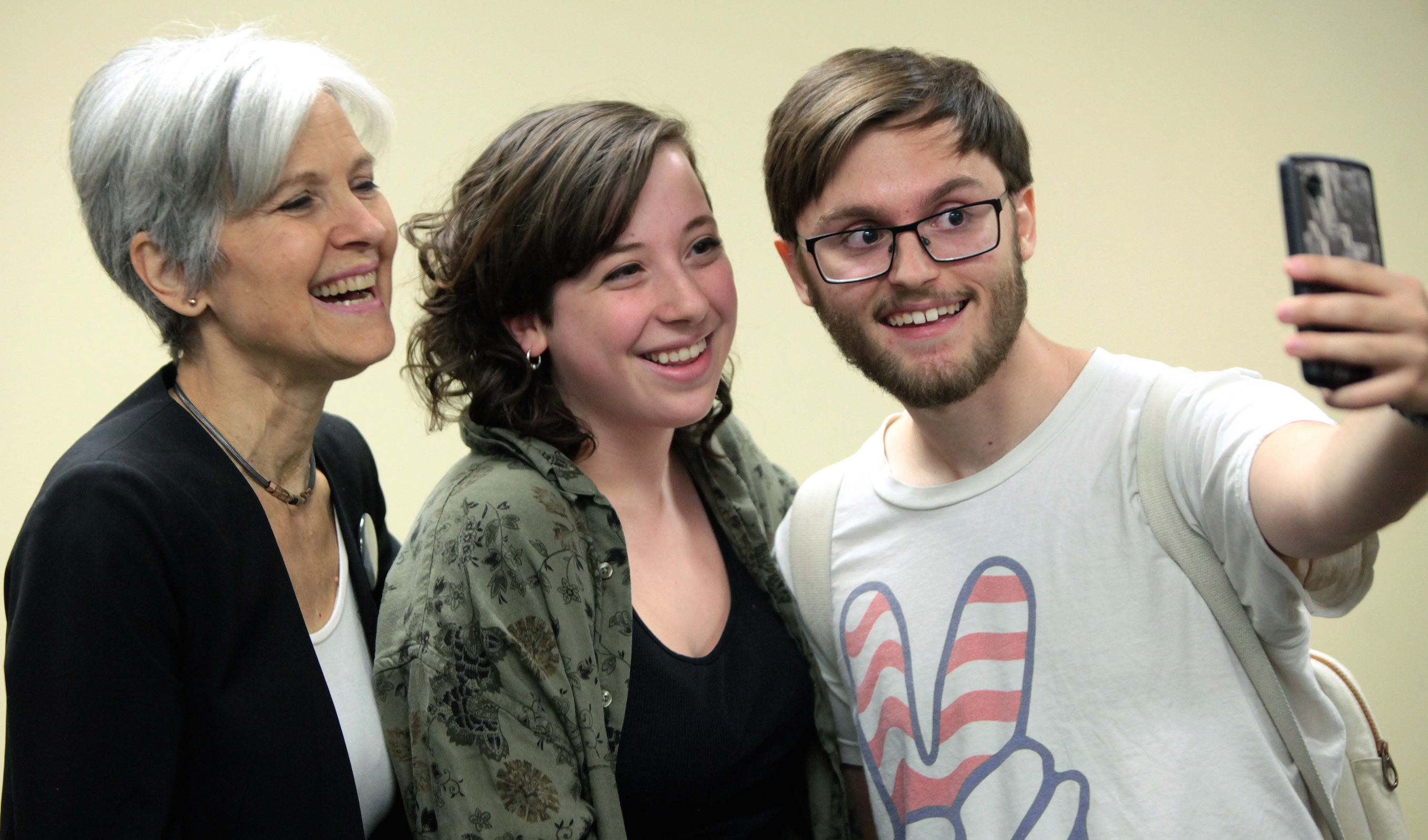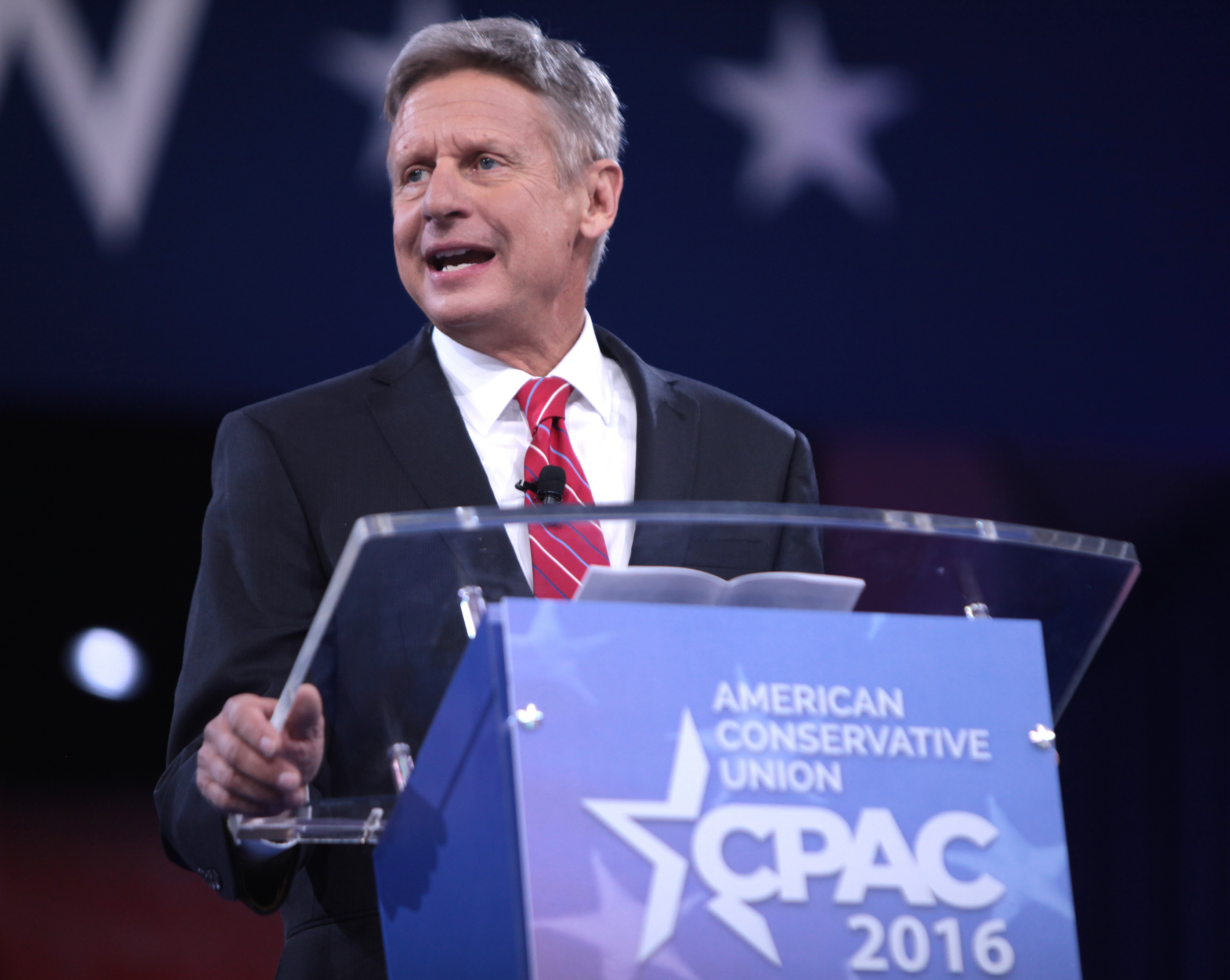
Politics & Society
Debate 3: Trump turns to language of advertising

The growing support for third-party candidates in the US will force a shift by both main parties to bridge disaffection
Published 21 October 2016
Third-party candidates are picking up lots of love in the US Presidential election.
The most noteworthy is the Libertarian Party candidate, Gary Johnson, who has been polling between 7-12% nationally – numbers that in the last 50 years have been eclipsed only once, by billionaire Reform Party candidate Ross Perot in 1992.
The support for Johnson, and for Green Party candidate Jill Stein and independent Republican Evan McMullin, has generally been attributed to the Democrat and Republican parties nominating candidates, in Hillary Clinton and Donald Trump, who are not well regarded by voters.

This view is certainly right to some extent. Trump’s unfavourable numbers are unprecedented. He began his campaign as a divisive figure and after a spate of recent scandals things have only got worse for him, with 65% of probable voters now expressing an unfavourable or strongly unfavourable view of him.
Clinton is not much better off – her ‘unfavourability’ rating is higher than almost any other major candidate on record.
However, with populist and nationalist parties sprouting up in many countries, election watchers are asking whether there is something else behind the growth in support for third parties in the US, and what, if anything, it might mean for the future of electoral politics there.
The electoral system in the United States guarantees we’re unlikely to ever see a significant number of third party candidates elected to public office.

Politics & Society
Debate 3: Trump turns to language of advertising
With its independently elected executive and first-past-the-post voting, the US has an electoral system that structurally favours domination by two major parties (a fact described by political scientists as Duverger’s Law). The reason for this is that in a first-past-the-post system, rather than working to influence policy through small issue-centric parties, those who have views on particular issues that diverge from the majority are better off trying to effect change working within the confines of one of the major parties.
By contrast, in parliamentary democracies, especially those that utilise proportional representation in at least one of their elected bodies, as Australia does, small parties have more influence over policy because they are sometimes able to demand concessions from larger parties in exchange for helping them to form governing coalitions.
But US voters are disillusioned with the two major parties that foreshadows the changes we’re likely to see in one (or both) of the Democrat and Republican parties in coming years.

Politics & Society
Why Trump is like the Terminator
As a result of changing demographics as well as structural shifts in the economy, both parties have begun to experience a fracturing of the traditional coalitions from which they have traditionally drawn support.
One particularly significant source of this has been the steady shift of the American economy away from manufacturing industries and towards the service sector. This shift has been partly responsible for the stagnation in the incomes of working and middle-class families. With the widespread perception that both parties are too beholden to big corporations, it’s no surprise significant numbers of voters no longer see either party as representing their interests.
This is almost certainly what explains what we saw in the primaries for both parties where voters threw significant support behind “outsider” candidates like Ted Cruz, Bernie Sanders, and it likely explains the significant support that Donald Trump is still attracting.

Although third parties are unlikely to ever have a direct impact on American politics, it is very likely they will come to have a significant indirect influence – either as a result of their ability to help shape national conversations, or, more plausibly, because the support they are now enjoying will force the Democrat and Republican parties to evolve in order to regain the support of currently disaffected voters.
In a campaign season that has been focused far too much on personalities, the attention third party candidates have received has led to some (albeit still far too little) time being spent on issues that would otherwise have been neglected.
In the case of Jill Stein, that issue is climate change and what (if anything) we should do about it.
This is a rigged debate controlled by the 2 corporate political parties. 76% of Americans wanted a 4-party debate. #debatenight
— Dr. Jill Stein (@DrJillStein) October 20, 2016
The Libertarian Party, headlined by two former Republican governors of Left-leaning states, has raised the idea that America should be less quick to intervene in foreign conflict, and that there is space in American politics for a political coalition that is fiscally conservative, but socially liberal.
The most lasting influence of this year’s support for third party candidates, however, may end up coming in the future. If Libertarian Gary Johnson receives at least 5% of the vote in November - a number that polls suggest is possible - he guarantees his party’s public funding at the next election. And, although the Libertarian Party would still be unlikely to win many electoral victories, that would go a long way towards guaranteeing that voters disillusioned by the two major parties will continue to have a voice.
Banner Image: Jill Stein poses with supporters after a meeting in Arizona in March, 2016. Picture: Gage Skidmore/Flickr